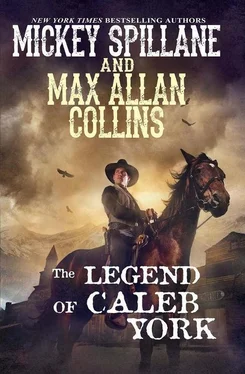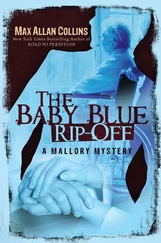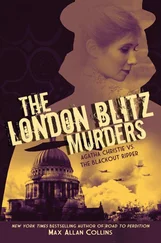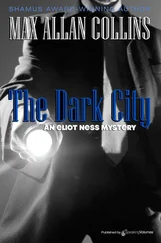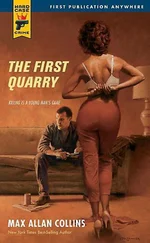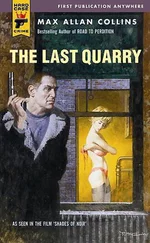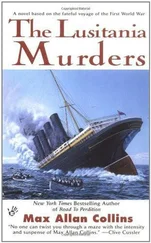Lola tucked the derringer back in its sleeve rig and the wrinkled slip of paper into a pocket, then walked quickly to the livery stable, where she got her horse and rode off to deliver her own message.
From her saddle atop Daisy, Willa — in red-and-black plaid shirt, red neck-knotted scarf, denims, and stirrup-friendly boots — shielded her eyes from the sun and let them roam over the endless, slightly rolling grassy expanse before her. She and a dozen other riders were paused at a slight rise in their search for dead cattle that didn’t seem to want to be found.
They had been at it since shortly after dawn, and — after meeting up with the stranger and thirty-some other men on horseback whom he’d managed to enlist from Trinidad — they’d put in another two fruitless hours. The volunteers from town, shopkeepers and clerks, looked almost comically out of place on the range in their suits and ties and bowlers. They had split up into three groups, the men from town joining cowhands from the Cullen spread and the other independents, a rancher leading each contingent.
Willa’s group consisted of foreman Whit Murphy, several Cullen hands, half-a-dozen Trinidad men, and herself. And, of course, the stranger, whose tenderfoot-worthy apparel was looking considerably less fancy after the dust, sweat, and riding of the morning.
Right now they were looking at a whole lot of nothing under a sun that was almost directly above them, and growing ever hotter.
Whit, his expression foul, said, “This is loco — we ain’t found any sign of dead cows.”
The foreman sat on horseback on one side of her and the stranger on the other.
The man in black on his dappled gelding said, “They’re around.”
“Really?” Whit snapped. He threw an open hand out. “Where?”
“That’s the question.”
A rider came up quickly — Matt Gerrity, the small, tough owner of another of the few remaining independent spreads. In his forties, with sharp cheekbones, untrimmed reddish brown mustache, and cleft chin, the grizzled Gerrity was otherwise indistinguishable from any of the hard-riding cowhands who worked for him, half a dozen of whom — supplanted by the fish-out-of-water townsmen — arrived moments after their boss.
The rancher pointed and said, “We covered all that end, Miss Cullen, Whit. No sign of nothin’ bein’ buried there.”
The stranger asked, “No sick cattle?”
Gerrity shook his head. “We swung all through that herd Gauge’s got staked out for delivery. Checked all around.” He shrugged, shook his head again. “No sign of the pox.”
The third group of riders came up and their leader — Charley Mathis, another independent rancher — drew up beside Gerrity. Nobody looked happy.
Whit said, “How about it, Charley? Find anything?”
Mathis was in his fifties, weathered, white-haired with matching handlebar mustache and small, shrewd eyes that crowded a hooked nose.
He said, “Not a damn thing, Whit. The south range looks clean as a whistle.”
Whit said nothing, or at least he spoke no words — his darkening expression was eloquent enough without them.
With a weight-of-the-world sigh, the foreman climbed down off his horse, and when he came around in front, he had his .45 in hand, aimed the stranger’s way.
“Keep away from those guns, mister,” Whit said. “Sidearm and shotgun both. Hands up, shoulder-high.”
“Whit!” Willa said, stunned.
The man under the gun followed instructions. “Well, Whit. You seem to have somethin’ on your mind.”
The menacing figure was sneering up at the stranger. “You could say that. Like thinkin’ how things are startin’ to make sense, about now.”
Her forehead tense, Willa said, “Whit, what in God’s name do you think you’re—”
“All due respect, Miss Cullen,” he said, cutting her off, “this is between one man and another one.”
“You work for me!”
“No. I work for your father.”
The others on horseback were watching, some with interest, others in confusion. Perhaps half the men wore a glowering cast and appeared to share Whit’s sentiment.
“We’re on the same side,” the stranger observed. “Squabbling gets us nowhere.”
Gun thrust up at the man, Whit said, “Really? Well, you never even said which side you was on, stranger! Hell, you never even gave us a name. Could be you’re workin’ for Harry Gauge.”
Willa, head spinning, said, “Why would you say such a thing, Whit?”
With his free hand, the foreman gestured to the vastness of range around them. “Gauge rustled our herd, all right, and moved ’em toward the foothills. No question about that. And what with all these men we put together for this dead-cow hunt, we damn well might’ve located them beeves by now.”
“Possibly,” the stranger allowed.
Now Whit spoke to the other men on horseback who were looking on, while never taking his eyes — much less his .45 — off the stranger. The one thing they all knew about this man in a pearl-buttoned black shirt was that he was dangerous, and deadly with a gun.
Whit continued, “Only, we didn’t go lookin’ for Mr. Cullen’s herd, no. Instead, we spend all our time lookin’ for dead cattle that ain’t here — that ain’t nowhere. ”
“Whit,” the stranger said quietly, with the tiniest nod, “you’re going to want to put that gun away.”
The foreman just grinned up at him. “You and Gauge hatched yourselves one hell of a scheme. Put on quite a show. But when we send you back to him, across your saddle? He’s gonna know things ain’t worked out exactly as planned.”
Willa said, “Whit — are you listening to yourself? He killed four of Gauge’s deputies. ”
“Small sacrifice for Gauge to make out of his numbers,” Whit said, with a downturned smile, “if him and his helper here could put this over.”
“Whit Murphy,” Willa said, pointedly, “you’re not making sense... ”
“Miss Cullen, you need to stay quiet now.”
A faint smile traced the stranger’s lips. “Not very smart, are you, Whit? A good man and loyal. Just not too smart.”
“Keep ’em up!” Whit blinked away the insult. “Now, we can hang you or shoot you. Any preference, stranger? We’re civilized people, around these parts...”
But the stranger seemed not to be paying attention to Whit and the threat he posed. Instead, he was looking up and beyond his Colt-waving accuser.
Quietly he said, “Before you make me kill you, Whit, you might want to look yonder.”
And the stranger, with one already upraised hand, pointed to the sky, above and behind Whit.
The foreman grunted a laugh. “You really do think I’m stupid.”
“I do,” the stranger admitted. “But that’s not why you should look. Over by that draw...”
Willa already had looked and seen, in the distance, ominous dark birds with widespread wings, circling.
She said, and it was a suggestion not an order, “Put that gun away, Whit.”
Everybody else was looking in that direction, too, and finally so did he.
“Buzzards!” Whit said.
“Well,” the stranger said. “Now you’re smart.”
Frowning, Whit holstered his gun and got back on his horse, to join the rest as they rode in the direction of the swooping predators who’d sensed carrion.
Soon the riders on horseback were gathered at the edge of the draw, looking down to see the partially exposed remains of a steer under a landslide that had been created to form a mass grave. A buzzard was perched, pulling an eyeball from a socket, snapping a last stubborn string of flesh like a rubber band. Then, sensing the presence of other creatures — living ones — the buzzard flapped away.
Читать дальше
